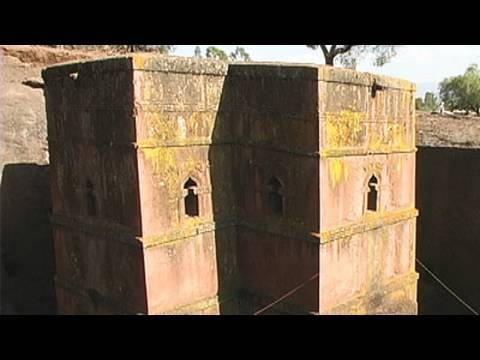
Ethiopia, often described as the cradle of humanity, is a country that offers an unparalleled travel experience. It is where the past and present coalesce, forming a unique tapestry of culture, history, and breathtaking landscapes. From the ancient rock-hewn churches of Lalibela to the simmering Danakil Depression, Ethiopia presents an array of wonders that beckon travelers seeking adventure and enlightenment.
### Historical Marvels
One cannot discuss Ethiopian tourism without mentioning its rich historical heritage. The country’s history is marked by incredible tales of queens and kings, battles and conquests, all of which have left behind a treasure trove of archaeological sites.
**Lalibela**: Known as the “New Jerusalem,” Lalibela is home to eleven monolithic churches carved out of rock in the 12th century. These architectural marvels, designated as a UNESCO World Heritage site, are active places of worship and pilgrimage for Orthodox Christians.
**Axum**: The ancient city of Axum signifies the heart of ancient Ethiopia, once a powerful kingdom known across the world. The obelisks (stelae), towering granite monuments dating back thousands of years, are testimonies to Axum’s glorious past.
**Gondar**: Often referred to as ‘Africa’s Camelot’, Gondar was Ethiopia’s royal capital from the 17th to 19th centuries. It boasts numerous castle-like palaces in a compound called Fasil Ghebbi – another UNESCO World Heritage site.
### Cultural Expanse
Ethiopia is recognized for its diverse range of ethnicities and languages. Each region offers distinct traditions, crafts, music, dance, and cuisine.
**Omo Valley**: Home to several indigenous tribes including the Mursi and Hamar people, the Omo Valley provides insights into some of Earth’s oldest living traditional cultures. Visitors can learn about their intricate rituals, adornments like lip plates and body paintings which make for a deeply humanizing experience.
### Natural Wonders
Ethiopia’s landscape is just as varied as its cultural makeup. From jagged mountains and verdant plateaus to arid deserts — the country has it all.
**Simien Mountains National Park**: Often described as ‘the Roof of Africa’, this park offers stunning scenery with jagged mountain peaks like Ras Dashen (the highest point in Ethiopia), deep valleys and sharp precipices. It’s also home to unique wildlife such as gelada baboons, Ethiopian wolves, and Walia ibexes.
**Danakil Depression**: One of Earth’s hottest spots with surreal landscapes that include volcanoes with lava lakes (such as Erta Ale), salt flats filled with bright yellow sulfur deposits; visiting Danakil feels like stepping onto another planet.
### Coffee: The Gift to the World
A visit to Ethiopia would be incomplete without experiencing its coffee culture. Known as the birthplace of coffee — specifically from Kaffa region — coffee ceremonies are intrinsic to Ethiopian life. These involve roasting green beans over hot coals in a pan while filling surroundings with aromatic smoke followed by grinding them fresh for brewing in traditional pots called ‘jebena’. This social event extends beyond mere consumption; it’s about community bonding and hospitality.
### Conclusion
Traveling through Ethiopia is more than just sightseeing; it’s about embarking on a journey through time — from witnessing ancient traditions still alive today into exploring nature at its most extreme conditions on earth at Danakil Depression or tranquil beauty atop Simien Mountains.
With every expedition within this majestic land comes an opportunity to learn not only about humanity’s past but also about resilience and beauty found in diversity—a lesson very much pertinent today more than ever before.
For those looking ahead their next adventure or seeking deeper reflection on human journey– Ethiopia awaits with open arms ready share its stories.
### Travel Tips
– **Best Time to Visit**: The best time typically runs from October through June when there’s minimal rainfall impairing travel plans.
– **Visa Requirements**: Many nationalities can easily get visas upon arrival or online e-visas prior departure.
– **Health Precautions**: Ensure vaccinations are up-to-date particularly for malaria prophylaxis; tap water isn’t always safe drink so stick bottled or boiled water.
– **Local Etiquette**: Ethiopians are known their hospitality but respecting local customs such removing shoes when entering homes participating religious sites goes long way ensuring positive interaction locals.
